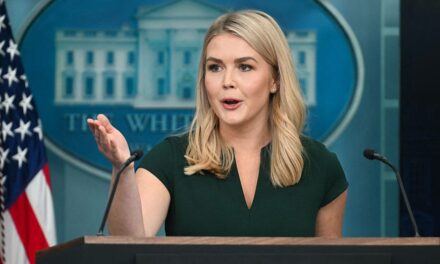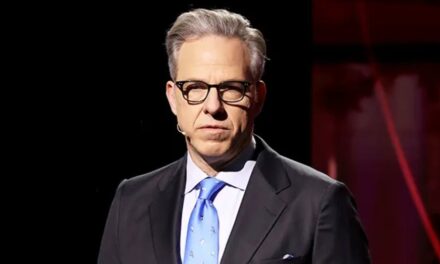In an increasingly polarized political landscape, discussions surrounding the relationships between media figures and politicians are often illuminating. Recently, the CEO of The Babylon Bee, a popular satirical website known for its humorous take on current events, shared his thoughts on the meeting between Bill Maher and former President Donald Trump. This occurrence has sparked significant conversation in the political and media circles.
Bill Maher, a well-known liberal commentator and host of the HBO talk show “Real Time with Bill Maher,” surprised many when he agreed to meet with Trump. This event was particularly notable given Maher’s long-standing criticism of the former president. The meeting offered Maher an opportunity to engage directly with Trump and discuss issues that impact Americans, despite their significant ideological differences. The Babylon Bee’s CEO viewed this meeting as a vital step towards open dialogue amidst a divided political atmosphere.
In his remarks, the CEO emphasized the importance of such face-to-face discussions. “To see someone like Maher—a prominent figure on the left—sitting down with Trump is a breath of fresh air,” he stated. “It shows that there are still opportunities for conversations that go beyond the usual soundbites and angry exchanges that characterize so much of our political discourse today.”
This perspective resonates particularly well with those who advocate for robust dialogue across political divides. The Babylon Bee’s leadership has often encouraged satire that serves to shed light on various aspects of contemporary society, including the challenges posed by political polarization. By encouraging figures from opposing sides to engage, the hope is that more productive discussions can emerge.
Further comments from the CEO highlighted the contrast between Maher’s approach and that of California Governor Gavin Newsom. Unlike Maher, who actively sought out Trump for a candid conversation, Newsom has been perceived as “calculated” in his attempts to engage with conservative audiences. This characterization drew attention to what some critics view as an opportunistic form of outreach, lacking sincere intent.
The CEO elaborated on this, stating, “Newsom’s efforts sometimes come off as more of a political strategy than a genuine effort to bridge divides. It seems like a calculated move to gain favor with the right-wing audience rather than an authentic attempt at dialogue.” This remarks reflect the sentiment among some observers who believe that the governor’s efforts may not stem from an earnest desire to communicate but rather from a sense of political expediency.
Newsom’s recent actions, including his appearances on conservative platforms and his comments that seek to appeal to centrist voters, have stirred debate about authenticity in political conversation. Critics argue that such moves can come across as disingenuous, making it difficult for constituents to trust the motivations behind his outreach.
Moreover, the Babylon Bee CEO’s insights highlight a broader concern regarding modern political communication. In an age where social media dominates the information landscape, the challenge of maintaining authenticity while navigating the complex web of public opinion is increasingly daunting for politicians. The risk remains that engagement strategies, like those implemented by Newsom, might easily be perceived as nothing more than efforts to exploit divides for personal or political gain.
On the flip side, Maher’s willingness to step outside of his comfort zone to meet with a controversial figure like Trump illustrates an important willingness to engage with those who hold different views—a practice that could serve as a model in future political dialogues. The Babylonians Bee’s CEO articulated this sentiment, stressing the need for more individuals, especially celebrities and influencers, to take the initiative in promoting cross-partisan conversations.
As Maher and Trump engaged in discussions ranging from policy to personal anecdotes, the implications of such meetings extend beyond just a single dialogue. They signify a potential pathway for breaking barriers, where individuals can begin to see the complexity of others’ views rather than simply reducing them to unyielding stereotypes. The message is clear: if accomplished media figures are willing to sit together, perhaps it can inspire the average person to engage in similarly constructive exchanges.
The positive reception of Maher’s meeting with Trump stands in stark contrast to the way many perceived Newsom’s outreach. The difference lies in the manner of their communications: one showing genuine curiosity and a willingness to understand differing perspectives, while the other appears to be more about performing politically rather than fostering real connection. This contrast raises significant questions about the evolving relationship between media, politics, and public engagement.
In various discussions related to political outreach and engagement, experts have noted the necessity of authenticity. A politician like Newsom, who engages in discussions that seem strategically timed or politically motivated, risks alienating constituents who desire sincerity. Meanwhile, those who opt for authentic dialogue, like Maher, may find their efforts leading to not only personal growth but also a more general societal emphasis on collaboration over conflict.
Further complicating the scenario are the hyper-partisan divides that characterize modern American politics. In an environment where partisan loyalty is often prioritized over constructive dialogue, the path to understanding one another becomes obstacle-ridden. However, meetings like that between Maher and Trump invite renewed hope that perhaps a shift is possible—a movement away from hostility and towards communication, understanding, and maybe even consensus.
Overall, discussions regarding political engagement and outreach continue to evolve with the times. As noted by the Babylon Bee’s CEO, the key to successful dialogue lies in a genuine willingness to understand differing viewpoints rather than merely trying to win over the other side for the sake of political advantage. Moving forward, it will be interesting to see how these conversations continue to unfold, and whether individuals in significant media positions will take cues from recent events to foster a culture of more transparent and meaningful political discourse.
In summary, what we can take from these recent developments is the fundamental idea that engaging civilly with those who hold differing opinions—especially in a time of division—might be the first and necessary step toward bridging divides. It’s a trend that should be encouraged, and not just among politicians but also in everyday life—because finding common ground often begins with a conversation.
































